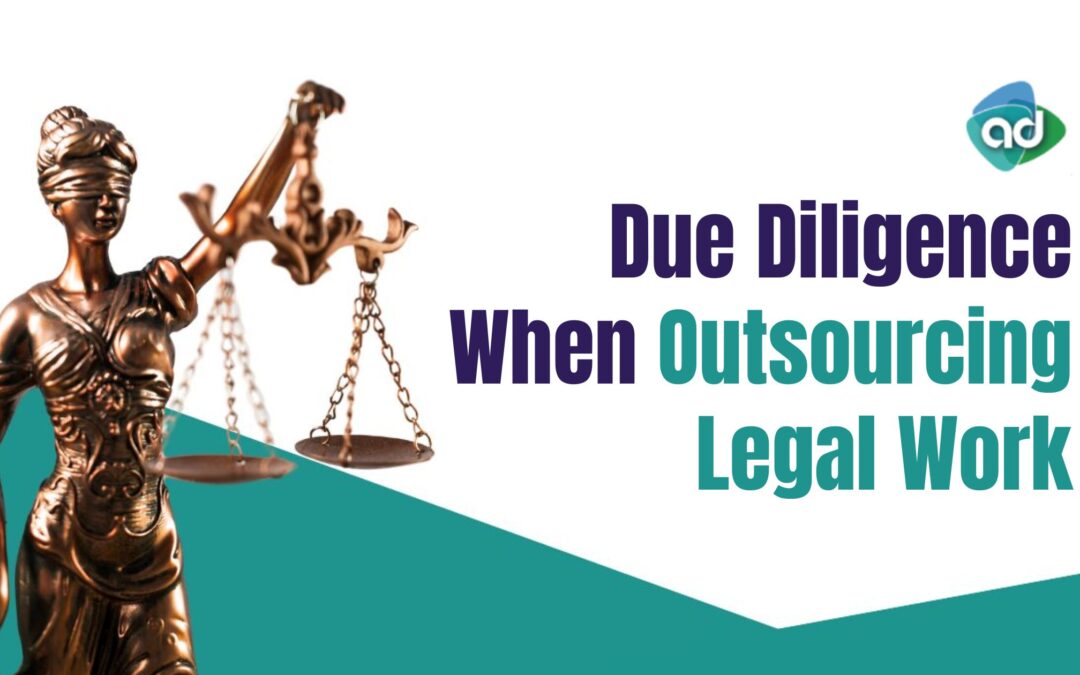Outsourcing legal work has become a popular trend in the legal industry as firms and companies seek to reduce costs and increase efficiency. However, before deciding to outsource any legal work, it is crucial to conduct due diligence to ensure the outsourcing partner’s quality, reliability, and ethical standards. This blog will discuss the importance of due diligence when outsourcing legal work and why it should be an integral part of the outsourcing process.
What is Due Diligence?
Due diligence is investigating, evaluating, and verifying information about a potential business partner or investment opportunity to make an informed decision. In outsourcing, due diligence involves thoroughly researching and scrutinising the reputation, qualifications, and capabilities of the outsourcing company or individual before entering into a contract.
Avoiding Ethical and Legal Issues
One of the primary reasons for conducting due diligence before outsourcing legal work is to avoid any ethical and legal issues. The legal industry has strict regulations and ethical standards that must always be upheld. Outsourcing legal work to a company or individual that does not meet these standards can lead to serious repercussions, including lawsuits, damage to reputation, and even disciplinary action from regulatory bodies. By conducting due diligence, firms can ensure that the outsourcing partner is ethical and compliant with all applicable regulations.
Ensuring Quality and Reliability
Legal work requires precision and accuracy as it can significantly impact the outcome of a case or business deal. Therefore, ensuring that the outsourcing partner has the necessary skills, experience, and resources to deliver high-quality work consistently is crucial. Through due diligence, firms can verify the qualifications, track record, and performance of the outsourcing partner to ensure they can meet the firm’s and its clients’ expectations and standards. By doing so, firms can mitigate the risk of receiving subpar work and prevent any potential setbacks or delays in legal proceedings.
Protecting Client Confidentiality and Data Security
As legal work involves sensitive and confidential information, firms have a legal and ethical responsibility to protect their client’s data. When outsourcing legal work, it is essential to ensure that the outsourcing partner has robust data security measures to prevent data breaches. Conducting due diligence can help firms assess the outsourcing partner’s data security protocols and systems, ensuring that their client’s information will be handled with the utmost care and protection.
Managing Cost and Improving Efficiency
One of the main reasons for outsourcing legal work is to reduce costs and increase efficiency. However, firms may incur more costs and delays in
the long run without proper due diligence. By thoroughly researching and evaluating the outsourcing partner’s pricing models and service offerings, firms can choose a partner that offers the best value for money while ensuring high-quality work. Furthermore, due diligence can also help identify any potential risks or issues that could affect the efficiency of the outsourcing partnership, allowing firms to address them beforehand.
Ensuring Cultural Competence
When outsourcing legal work, firms may work with individuals or companies from different cultural backgrounds. Ensuring that the outsourcing partner understands and respects the values and norms of the firm and its clients is crucial. By conducting due diligence, firms can assess the cultural competence of the outsourcing partner and ensure that they can work together effectively, avoiding any misunderstandings or conflicts.
Conclusion
In today’s fast-paced legal industry, outsourcing legal work has become common. However, it is essential to prioritise due diligence before entering into any outsourcing partnerships. By conducting due diligence, firms can mitigate risks, ensure quality and reliability, protect client confidentiality, manage costs, and improve efficiency. Therefore, firms must make due diligence an essential part of their outsourcing process to safeguard their reputation, ethical standards, and, ultimately, their clients’ interests.
